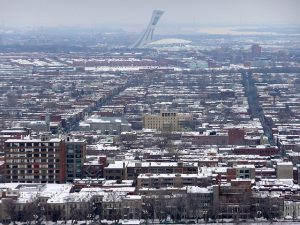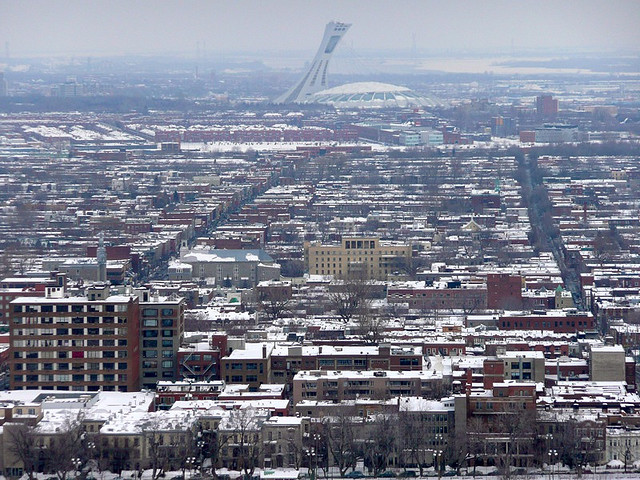by Trevor Fik (Staff Writer)
Email: cascade.news[at]ufv[dot]ca
 With the death of Montreal mafia leader Nicolo Rizzuto, many, including Vancouver Sun writer Michel Viatteau, have heralded his passing as “the end of an era” for the “most powerful crime group Canada has ever known.”
With the death of Montreal mafia leader Nicolo Rizzuto, many, including Vancouver Sun writer Michel Viatteau, have heralded his passing as “the end of an era” for the “most powerful crime group Canada has ever known.”
Rizzuto, who was 86 years old, was shot dead in his Montreal home as he entered his kitchen. The murder is being considered a professional hit due to investigators’ find that that the perpetrator had laid in the wooded area behind Rizzuto’s home, waiting for the “last godfather” to appear in his kitchen.
Rizzuto was killed with a single bullet; his wife and daughter, who were also in the home, were unharmed. Both were eventually treated for shock, as the blow to Canadian organized crime began to resonate around the country, and the ramifications of Nicolo’s death were still being felt.
The Rizzuto clan’s hold on the Montreal underworld, which spanned three generations and over thirty years of Sicilian-bred crime in Quebec, began with the elder Rizzuto’s immigration to Canada from Italy in 1954.
Nicolo soon became associated with the Calabrian Cotroni crime family in Montreal, who had known ties with the Bonnano family in New York, according to CBC News. While working with both families, who had a large share of the drug trade in Montreal, Rizzuto’s arrogance and often alternate ways of doing business, began to aggravate the leaders of both families noted CBC News.
In 1978, the in-fighting culminated with the assassination of Cotroni leader Paoli Violi and three of his brothers. In response to the murders, Rizzuto fled to Venezuela, while several of his associates were convicted in the murder of the Calabrian gang members. Rizzuto spent his time in South America solidifying ties with Columbian drug cartels, eventually returning to Canada in 1980 as the undisputed power of the Montreal underworld. Nicolo then handed down power to his son Vito, who became renowned for his ability to elude criminal conviction, earning the moniker “Teflon Don.”
Vito’s luck ran out in 2004 with a huge police crackdown on organized crime that brought charges of conspiracy to commit murder against Vito. Vito, who had his petition to have his case heard in Canada refused, was sentenced in court within the United States in 2007 to serve ten years for racketeering charges.
The sting that brought down Vito Rizzuto was only the beginning in a long line of bad luck for the crime family, as Vito’s son Nick Jr was gunned down in a Montreal two years later in 2009. Five months after the death of Nicolo’s grandson, his brother-in law, an elder financier for the Rizzuto family Paolo Renda, went missing outside his home.
A veritable who’s who of names have been added to the list of potential culprits in the Rizzuto murder, including Calabrian gang members, many of whom still hold a grudge for the late Paoli Violi’s death. However, with the gangster’s past dealings leaving in his wake a long line of enemies, it may never come to light who pulled the trigger.
The mafia in Montreal has seen a drastic fall in their fortunes of late, with their primary source of income being cut-off in the pursuit of cost-saving ventures by drug smugglers. Cocaine, which has long entered the United States from Columbia through border crossings with Quebec, is now coming into America via the Mexican border. At one time, as much as 80 percent of cocaine destined for America came through Montreal, according to the Vancouver Sun.
This has left organized crime groups struggling to find an alternative source of income, with many left to fight over Quebec’s various infrastructure projects, which are said to amount to as much as $42 billion in government funding within the next five years. It is estimated that the Rizzuto family has managed to siphon off upwards of 5 per cent of construction projects in Quebec, according to the Vancouver Sun.
While it is premature to herald Rizzuto’s death as the end of organized crime in Quebec as we know it, the conclusion of what has become a saga of crime history in Canada is significant, as it opens the door for a new generation of organized crime members to infiltrate Montreal.
And while the elder Sicilians and Calabrian gang members were bound by the principles of Cosa Nostra, which dictated the rules for revenge and advocated a code of silence amongst individuals, many second or third generation Italian-Canadians have long forgotten about the old ways. This could signal renewed violence in Quebec as groups battle for money and contracts in the wake of a huge void that has been left by the elder Rizzuto’s passing.


